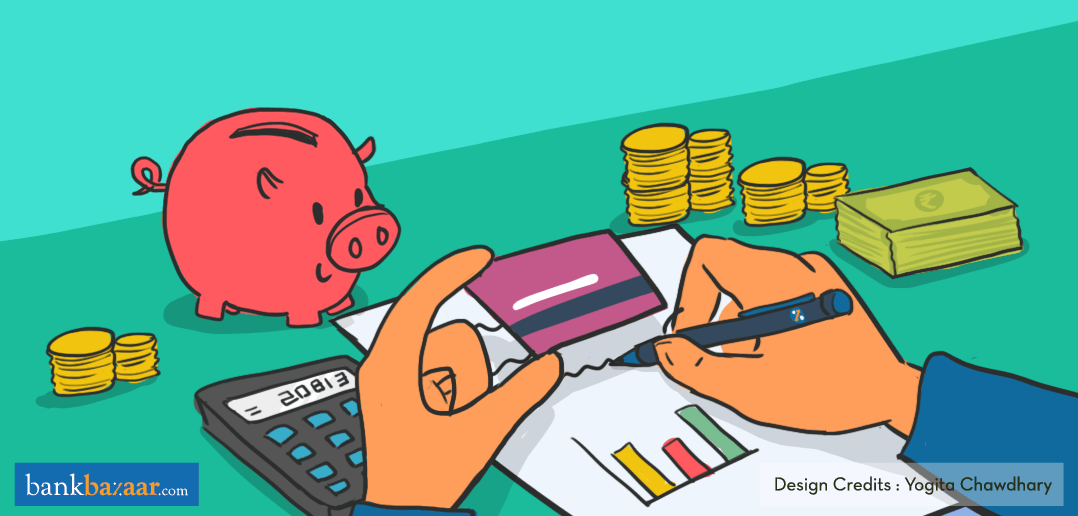Using a Credit Card doesn’t have to throw your budget into a whack. Let’s see how these are not two opposing areas of interest but go hand in hand.
 How often have you heard the words ‘Credit Card’ and ‘budget’ used in the same sentence? In the world of personal finance, it’s probably not considered as one of the most positive associations. If you think that being a Credit Card rewards enthusiast and a budget expert at the same time is an impossibility, think again.
How often have you heard the words ‘Credit Card’ and ‘budget’ used in the same sentence? In the world of personal finance, it’s probably not considered as one of the most positive associations. If you think that being a Credit Card rewards enthusiast and a budget expert at the same time is an impossibility, think again.
Let’s take a look at how using your plastic buddy wisely can help you stay on budget. In order to achieve this, all you have to do is master the art of making your Credit Cards work for your benefit instead of working against you.
Additional Reading: How To Be An Expert At Tracking Your Finances
To begin, let’s get the basics covered. What are the two most important features of Credit Cards that will come in handy while budgeting? Firstly, you’re given 30 interest-free days to make the payment. Secondly, you’ll no longer need to stash every receipt to track your cash flow. In the course of the blog, you’ll see how these go a long way in drafting a fool-proof budget.
Additional Reading: Are Unused Credit Cards Affecting Your Finances?
One of the chief reasons to use Credit Cards to pay for your bills is to optimize your rewards. Making purchases through your cards is the surest way to rack up airline miles, hotel loyalty points, cash back rewards, complimentary lounge access, and free movie tickets and huge savings on your fuel needs!
Apart from being loaded with such rewards, Credit Cards also come with several free perks such as fraud protection and a bunch of security services. Certain Credit Cards also come with a Travel Insurance to cover accidents and mishaps such as missing baggage and trip cancellations. The point is, you can save big bucks on paying through Credit Cards and make the most of many a reward!
Additional Reading: What’s The Deal About Envelope Budgeting?
Let’s check out some of the common ways of budgeting.
-
Zero-Sum Method
This budgeting technique involves using previous month’s income to fund this month’s expenses.
-
Spreadsheet Technique
You’ll need to create a spreadsheet with two columns, one for your expected expenses and the other for actual expenses. At the end of each month, compare the two columns and find your problem areas. This will also help you track where your money is actually going.
-
Online Tools
If you’re tech savvy, this one is probably perfect for you. Choose from the many budgeting applications or software programs available online and get started! All you need to do is input your earnings and expenditures and create a budget suited to your unique needs.
Linking your Credit Cards to online tools is one of the simplest and fastest ways to fetch the data necessary for tracking your expenditures.
Additional Reading: 6 Common Budgeting Blunders And How To Fix Them
How can a Credit Card help you keep track of your expenses? Unlike cash purchases, with Credit Cards there’s no need for you to maintain receipts and a log of your expenses. If you’re a card user, all you need is your monthly billing statements for a complete record of your purchases. This way it’s far easier for you to adjust our expenses and spending habits accordingly.
The interest-free period begins from the first day of your billing statement and ends on the due-date for the payment. Instead of clearing your balance within the payment deadline, if you still owe some money even after the interest-free period is over, you’ll be charged an interest on the outstanding balance. Don’t be daunted by this, instead capitalize on it and keep your payments on track.
So, you can see how a Credit Card is not only a great way to earn rewards but also an amazing means to keep your finances on track.
Additional Reading: 4 Budgeting No-Nos You’d Do Well To Avoid
Most Credit Card issuers let you to set up notification alerts. For instance, say you’ve set a 30% limit on your available credit. Once you reach the limit, you’ll receive a notification to alert. With such reminders, it’ll be easier for you to avoid over-stepping your budget.
However, here’s the key – using your Credit Card responsibly. Pay your bills in full and on time, routinely monitor your spending, and don’t get into the habit of defending your overspending habits with the excuse of having enough credit.
Additional Reading: How Budgeting Can Transform Your Financial Life
Taking cognizance of your cash flow is sure to help you make meaningful changes in your credit behavior. Use your Credit Card like a financial tool and set your finances back on track!
Besides keeping a check on your spending, using a Credit Card responsibly can help you build a good credit history and subsequently fetch a whopping Credit Score!